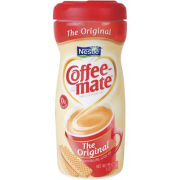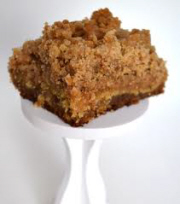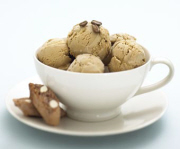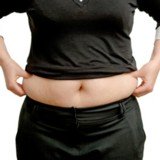Coffee Nutrition Facts
Coffee Nutrition Facts, Diabetes and Health Benefits
 Coffee is one of the most popular beverages in the world today. With many coffeehouses such as Starbucks being popular. In fact, many people have become addicted to coffee, developing headaches, mood swings and the like should they not have their daily dose, ranging from one, two, three or more cups a day.
Coffee is one of the most popular beverages in the world today. With many coffeehouses such as Starbucks being popular. In fact, many people have become addicted to coffee, developing headaches, mood swings and the like should they not have their daily dose, ranging from one, two, three or more cups a day.
These are those who have become coffee dependents and may even suffer withdrawal symptoms should they try to quit drinking it. So what is the makeup of coffee? What is it that makes people get so hooked on it? Are there any health benefits that come from drinking it? We will answer this question as we go along in this article.
There have been many theories on coffee and losing weight. It is important to understand that coffee is a stimulant that helps to put individuals in 'energy (sugar)-burning-mode'. This is not exactly what you want to happen when you're on a quest to lose weight. You want something that will help put you in 'fat-burning-mode' and lose that extra fat and kilos/pounds. Green tea on the other hand does quite the opposite. It gently energizes you whilst putting you in the desired fat burning mode, converting your fat into energy, helping you to lose those calories!
Coffee and Diabetes
When it comes to coffee and diabetes, or coffee and cardiovascular diseases, research has found that coffee has no adverse health effects on individuals when consumed moderately. However, it is when coffee additives such as cream, sugar, powdered milk and other flavorings are used that it (coffee) becomes undesirable in the management of diabetes and blood cholesterol levels. Given this, it is important for one to check the nutrition facts label of any coffee additive so you know just what you are adding to it and the effects it may have on you.
 Naturally, coffee is very low in calories and does not contain any carbohydrates. But when we use the additives, such as those we have just mentioned, carbohydrates and fat are introduced into the coffee as well as more calories. So if you are diabetic, when doing your meal planning and if you add something to your coffee such as cream or coffee creamer, you will have to include coffee as one of the carbohydrates that you would have consumed in that day. If you don't add anything, you exclude it from the carbohydrates of the day.
Naturally, coffee is very low in calories and does not contain any carbohydrates. But when we use the additives, such as those we have just mentioned, carbohydrates and fat are introduced into the coffee as well as more calories. So if you are diabetic, when doing your meal planning and if you add something to your coffee such as cream or coffee creamer, you will have to include coffee as one of the carbohydrates that you would have consumed in that day. If you don't add anything, you exclude it from the carbohydrates of the day.
Research done by the American Society of Nutrition revealed that consuming coffee had no harmful effects on blood glucose or cholesterol levels. It also suggested that drinking coffee may actually be advantageous when it comes to improving the HDL (good) cholesterol levels. However, due to its caffeine content, a health expert from the Harvard School of Public Health suggests that individuals who have problems in managing their diabetes or blood pressure as well as pregnant women should should stay away from coffee completely or switch to decaffeinated. Although generally speaking, it is advised that one consults their G. P or dietician first and receive their counsel and we all have different dietary needs.
Coffee Health Benefits
For those who consume alcohol and foods less nutritional, coffee has some health benefits. For one, research has shown that an increased intake of coffee reduces the occurrence of chronic liver disease. However, it would benefits beer and alcohol consumers to limit or stop completely their intake of alcohol and include more nutrient dense foods. Nutrient dense foods are those that are of high nutritional value but have very low calories.
In other words, their deliver great nutritional benefits as compared to the calories they contain. These are things like fruits, vegetables, whole foods to name a few. These are essential for those who want to lead a healthy eating lifestyle. Also, coffee contains high quantities of certain antioxidants such as polyphenols and methylpyridinium which is linked to a lowered incidence of various cancers. Different studies on coffee suggest that it may be beneficial to your health. These benefits include:
- Improving mental function and alertness,
- Providing liver protection thereby reducing the risk of liver cirrhosis,
- Reducing the risk of developing diseases such as gallstones, dementia, Oral cancer, Parkinson's, Alzheimer's, Gout and diabetes mellitus type 2.
- Enhances the effectiveness of painkillers (analgesics) as well as
- Helps to keep you hydrated
The risks of coffee include; staining of teeth (especially if one does not brush their teeth after drinking it), developing anxiety, iron deficiency anemia and insomnia. We will now take a look at some coffee nutrition facts. The percent daily values (DV) are based on a 2,000 calorie diet. Your values may be higher or lower depending on your daily calorie needs.
Coffee Nutrition Facts: Bean
 Coffee beans are naturally low in calories and are carbohydrate, fat and protein free. One of the most common things that the coffee bean is known for is its caffeine content. Caffeine occurs naturally in some plants and can also be man made. It is one of the things that have been vigorously studied over the years and the conclusion was that there was no substantial proof that it is detrimental to one's health. It affects your central nervous system and promotes mental alertness and energy. Caffeine also increases physical performance factors such as endurance and strength.
Coffee beans are naturally low in calories and are carbohydrate, fat and protein free. One of the most common things that the coffee bean is known for is its caffeine content. Caffeine occurs naturally in some plants and can also be man made. It is one of the things that have been vigorously studied over the years and the conclusion was that there was no substantial proof that it is detrimental to one's health. It affects your central nervous system and promotes mental alertness and energy. Caffeine also increases physical performance factors such as endurance and strength.
Usually, the effects of caffeine can be felt within 30 minutes of consumption, and depending on the individual's tolerance as well as the quantity consumed, can last up to three or four hours. Some individuals are sensitive to caffeine and may develop effects such as insomnia, trembling, anxiety and having digestive upsets just to name a few. Most of the caffeine sensitive individuals prefer to have decaffeinated coffee in order to avoid the symptoms.
Coffee Nutrition Facts
Instant regular powder coffee nutrition facts with half the caffeine show that it is basically a source of Magnesium, Potassium, Magnesium and Niacin. Niacin is especially helpful in producing energy from the foods we eat.

- Serving size- 1 tsp (1g)
- Calories- 4
- Calories from Fat- 0
- Total Fat- 0g
- Saturated Fat- 0g
- Cholesterol- 0mg
- Sodium- 0mg
- Total Carbohydrate- 0g
- Dietary Fiber- 0g
- Sugars- 0g
- Protein- 0g
- Vitamin A- 0% DV
- Vitamin C- 0% DV
- Calcium- 0% DV
- Iron- 0% DV
- Niacin- 1% DV
- Magnesium- 1% DV
- Potassium- 1% DV
- Magnesium- 1% DV
- Caffeine- 15.7mg
Folgers Coffee Nutrition Facts
One cup of Folgers coffee nutrition facts reveal that it is low, very low in calories and does not offer anything else in terms of nutrition.

- Serving size- 1 cup (8oz)
- Calories- 2
- Calories from Fat- 0
- Total Fat- 0g
- Saturated Fat- 0g
- Cholesterol- 0mg
- Sodium- 5mg, 0% DV
- Total Carbohydrate- 0g
- Dietary Fiber- 0g
- Sugars- 0g
- Protein- 0g
- Vitamin A- 0% DV
- Vitamin C- 0% DV
- Calcium- 0% DV
- Iron- 0% DV
Coffee Nutrition Facts: Mate
Coffee Mate original powder creamer nutrition facts are as follows:

- Serving size- 1 tsp (2g)
- Calories- 10
- Calories from Fat- 5
- Total Fat- 0.5g, 1% DV
- Saturated Fat- 0.5g, 2% DV
- Trans Fat- 0g
- Cholesterol- 0mg
- Sodium- 0mg
- Total Carbohydrate- 1g, 0% of DV ,
- Dietary Fiber- 0g
- Sugars- 0g
- Protein- 0g
- Vitamin A- 0% DV
- Vitamin C- 0% DV
- Calcium- 0% DV
- Iron- 0% DV
Black Coffee Nutrition Facts
Black coffee nutrition facts show that it contains the same amount of calories as the Folgers coffee and is a source of Thiamin, Niacin, Pantothenic Acid, Phosphorus, Magnesium, Potassium and is a good source of Riboflavin, providing you with 11% of your recommended daily value of the B-Vitamin.

- Serving size- 1 cup (237g/8 fl oz)
- Calories- 2
- Calories from Fat- 0
- Total Fat- 0g
- Saturated Fat- 0g
- Trans Fat- 0g
- Cholesterol- 0mg
- Sodium- 5mg, 0% of DV
- Total Carbohydrate- 0g
- Dietary Fiber- 0g
- Sugars- 0g
- Protein- 0g
- Vitamin A- 0% DV
- Vitamin C- 0% DV
- Calcium- 0% DV
- Iron- 0% DV
- Thiamin- 2% DV
- Riboflavin- 11% DV
- Niacin- 2% DV
- Pantothenic Acid- 6% DV
- Phosphorus- 1% DV
- Magnesium- 2% DV
- Potassium- 3% DV
Coffee Nutrition Facts: Cake
These are nutrition facts for a coffee and cinnamon cake with crumb topping. It's moderate to high in terms of calories, total fat and saturated fat. It is also a source of Dietary Fiber, Protein, Calcium, Iron, Zinc, Riboflavin, Niacin, Vitamin B12, Phosphorus and Potassium. In addition to these, the coffee and cinnamon cake is also a good source of Carbohydrates, Thiamin and Folic Acid.

- Serving size- 1 piece (63g)
- Calories- 260
- Calories from Fat- 130
- Total Fat- 15g, 20% DV
- Saturated Fat- 4g, 20% DV
- Cholesterol- 20mg, 8% DV
- Sodium- 220mg, 10% of DV
- Total Carbohydrate- 30g, 10% of DV
- Dietary Fiber- 1g, 4% of DV
- Sugars- 0g
- Protein- 4g, 8% DV
- Vitamin A- 0% of DV
- Vitamin C- 0% of DV
- Calcium- 4% of DV
- Iron- 8% of DV
- Zinc- 4% DV
- Thiamin- 10% DV
- Riboflavin- 8% DV
- Niacin- 6% DV
- Folate- 10% DV
- Vitamin B12- 2% DV
- Phosphorus- 8% of DV
- Magnesium- 4% of DV
1 Cup Coffee Nutrition Facts
When considering a cup of coffee and its nutrition facts, you realize that it is a source of Protein, Thiamin, Niacin, Folic Acid, Pantothenic Acid, Phosphorus, Potassium and Magnesium. It is also a good source of Riboflavin and a very good source of Zinc, providing 25% of the recommended daily allowance of the mineral.
- Serving size- 1 cup 8 fl oz (237g)
- Calories- 2
- Calories from Fat- 0
- Total Fat- 0g
- Saturated Fat- 0g
- Trans Fat- 0g
- Cholesterol- 0mg
- Sodium- 5mg, 0% DV
- Total Carbohydrate- 0g
- Dietary Fiber- 0g
- Sugars- 0g
- Protein- 0.3g, 1% DV
- Vitamin A- 0% DV
- Vitamin C- 0% DV
- Calcium- 0% DV
- Iron- 0% DV
- Thiamin- 2% DV
- Riboflavin- 11% DV
- Niacin- 2% DV
- Folic Acid- 1% DV
- Pantothenic Acid- 6% DV
- Phosphorus- 1% DV
- Potassium- 3% DV
- Magnesium- 4% DV
- Zinc- 25% DV
- Caffeine- 94.8mg
Coffee Nutrition Facts: With Cream and Sugar
Coffee nutrition facts on coffee with cream and sugar reveal that it is more than an excellent source of Vitamin A, Calcium and Phosphorus. It is low in calories and is also a source of Carbohydrates, Protein and Iodine.

- Serving size- 6 oz
- Calories- 73
- Calories from Fat- 30
- Total Fat- 3g, 5% DV
- Saturated Fat- 2g, 10% DV
- Cholesterol- 15mg, 5% DV
- Sodium- 25mg, 1% DV
- Total Carbohydrate- 11g, 4% of DV
- Dietary Fiber- 0g
- Sugars- 9g
- Protein- 2g, 8% DV
- Vitamin A- 6878% of DV
- Vitamin C- 0% of DV
- Calcium- 4000% of DV
- Iron- 0% DV
- Potassium- 2% DV
- Phosphorus- 100% DV
- Iodine- 2% DV
- Serving size- half a cup
- Calories- 110
- Calories from Fat- 50
- Total Fat- 6g, 9% DV
- Saturated Fat- 4g, 20% DV
- Cholesterol- 25mg, 8% DV
- Sodium- 35mg, 1% DV
- Total Carbohydrate- 13g, 4% of DV
- Dietary Fiber- 0g
- Sugars- 11g
- Protein- 2g, 8% DV
- Vitamin A- 6% of DV
- Vitamin C- 0% of DV
- Calcium- 6% of DV
- Iron- 0% DV

So there you have it, generally speaking, coffee when consumed moderately and does not contain many additives, is not harmful to your health. So go ahead and have a cuppa, but don't over-do it!


